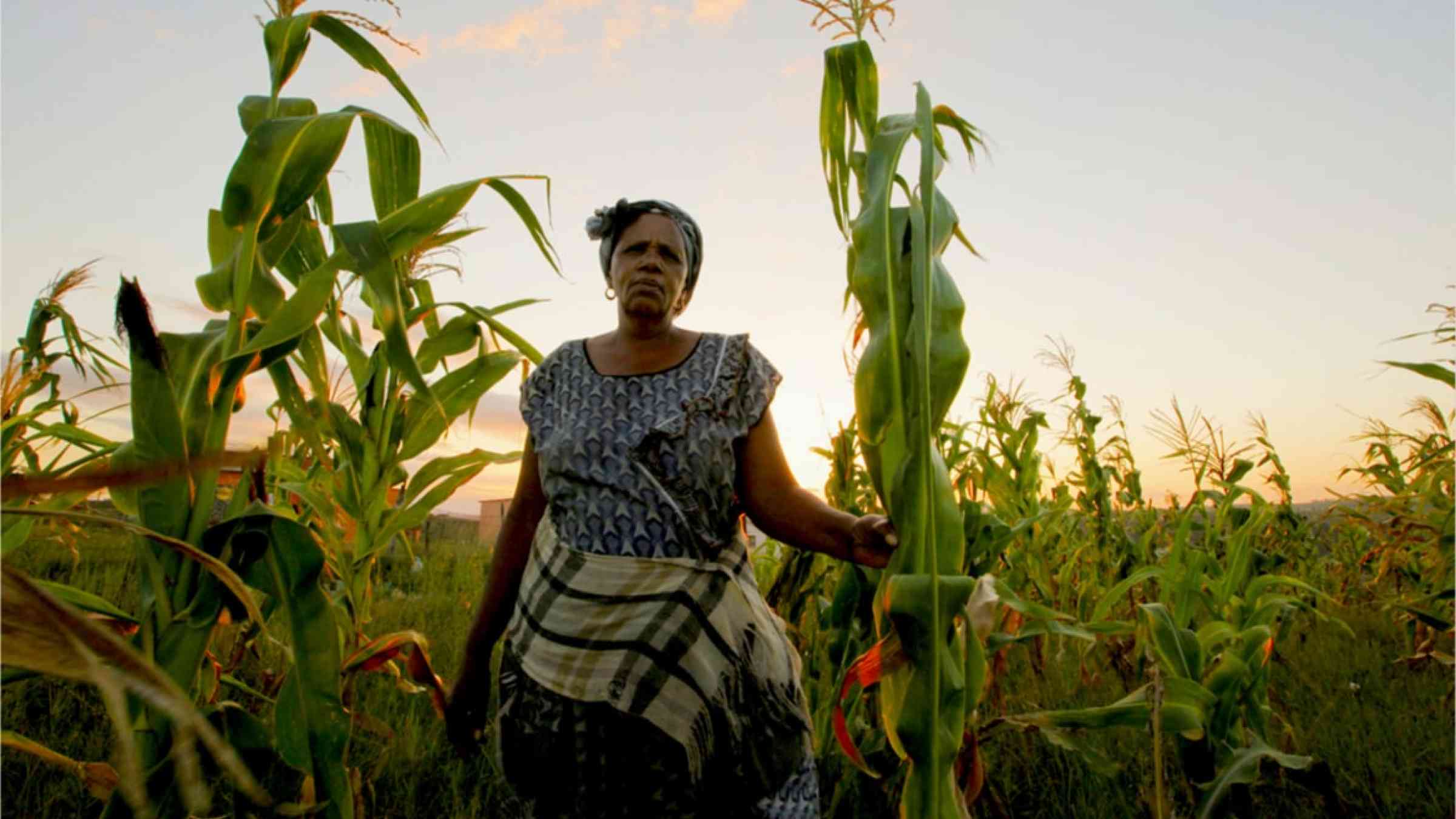Five reasons why climate action needs women

As we celebrate International Women's Day today, it's important to recognize the vital role that women play in tackling climate change.
While climate change affects everyone, it does not affect everyone equally. Vulnerability to climate change is exacerbated by inequity and marginalization linked to gender, ethnicity, low income, and other social and economic factors.
When solutions to climate change address these realities, they are more effective.
This is where women come in. Here are five compelling reasons why women are essential for climate action.
Reason 1: Climate action requires 100 percent of the population
Half of the world’s population is comprised of women and girls, yet they are often left out of the conversation when it comes to climate change. But if we want to achieve the Paris Agreement goal of limiting global temperature rise to 1.5 degrees Celsius, we need everyone on board. That means more women and girls need to be empowered and involved.
We need women, in all their diversity, involved at all levels – from climate negotiations to boardrooms to forests and fields, especially in sectors and regions hit hard by the ravages of climate change.
Indigenous women, in particular, have been at the forefront of environmental conservation and have invaluable knowledge and expertise that can help build resilience and reduce greenhouse gas emissions. By including more women in climate action, we can create a more sustainable and equitable future for all.
Reason 2: Empowering women means better climate solutions
Women make up nearly half of the agricultural labor force in developing countries. When provided with the same access to resources as men, women can increase their agricultural yields by 20 to 30 percent. This boost in productivity not only improves total agricultural output by 2.5 to 4 percent, but it can also help reduce world hunger by 12 to 17 percent, according to the UN.
Empowering women in agriculture can also have a positive impact on climate adaptation. By providing appropriate technology and resources, we can promote more sustainable farming and conservation practices. And by reducing poverty, we can help individuals better adapt to the effects of climate change.
Investing in women and girls has far-reaching benefits for communities and countries. In fact, research shows that countries with high representation of women in parliament are more likely to ratify international environmental treaties.
Reason 3: Women are key to building climate resilience in communities
When it comes to building climate resilience in communities, involving women is crucial. In fact, the UN reports that communities are more successful in resilience and capacity-building strategies when women are part of the planning process.
Additionally, women are usually first responders in community responses to natural disasters, leaders in disaster risk-reduction, and contribute to post recovery by addressing the early recovery needs of their families and strengthening community building.
By involving women in community planning and disaster response efforts, we can build stronger, more resilient communities that are better equipped to face the challenges of climate change.
Reason 4: Climate change affects us all, but not equally
Climate change affects everyone, but it doesn't impact everyone equally. It is well-established that climate change has a greater impact on the world’s most vulnerable people, whether in developed or developing countries, and exacerbates existing inequalities. Women often face higher risks and greater burdens from the impacts of climate change in situations of poverty and due to existing roles, responsibilities and cultural norms.
For example, in many societies, women are responsible for household energy, food, water and care for the young and elderly. Particularly in developing countries, the consequences of climate change can increase the burden for women and girls, for example, causing them to travel further to obtain daily supplies, leaving less time for paid work and potentially exposing them to greater risk to their personal safety.
But here's the good news: investing in gender equality and women's empowerment has far-reaching benefits, including environmental conservation, poverty reduction, and achieving the Sustainable Development Goals (SDGs). And by tackling climate change with a gender lens, we can also address women's rights and promote greater gender equality.
Reason 5: Countries recognize the importance of gender in climate planning
The good news is that women and girls are becoming increasingly empowered to contribute to, and benefit from, climate action.
Within the UN Climate Change process, many countries have shared how they are integrating gender across different priority sectors within their national climate action plans (Nationally Determined Contributions) and National Adaptation Plans.
The Gender Action Plan agreed by governments under the UN Framework Convention on Climate Change (UNFCCC) calls for women's full, equal, and meaningful participation in the international climate process and to ensure a prominent role for women in decision-making and in climate action.
Governments meeting under the UNFCCC adopted a goal of gender balance in national delegations and in national climate policy and action in 2012. Since then, the UN Climate Change secretariat has reported annually on the gender composition of national delegations and policy and decision-making bodies under the UNFCCC and the Paris Agreement.
What is needed now is for countries to be deliberate in how they seek to achieve gender parity in local, national and international climate policy and decision-making roles.